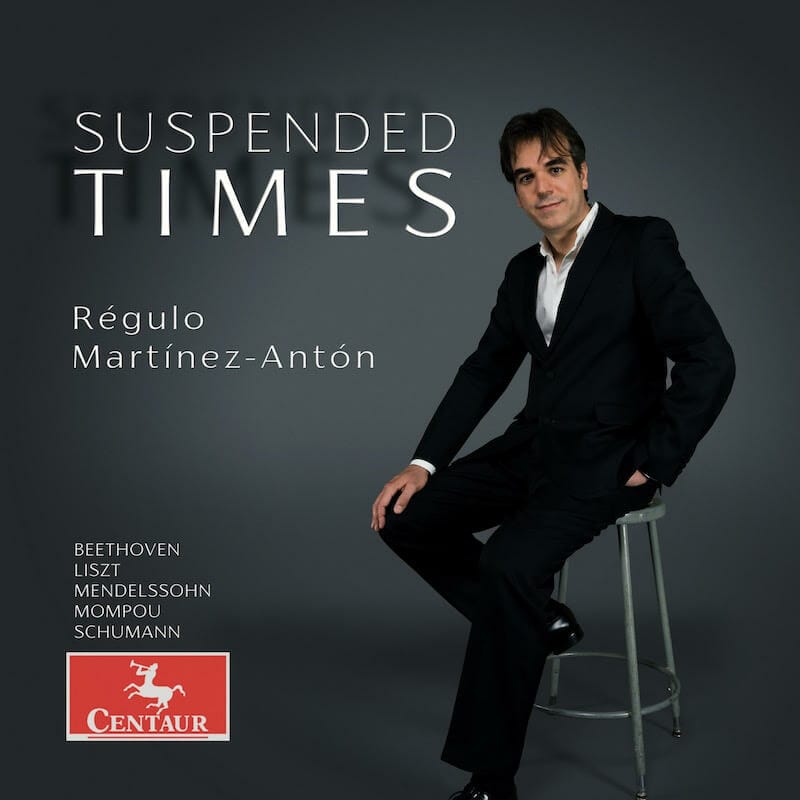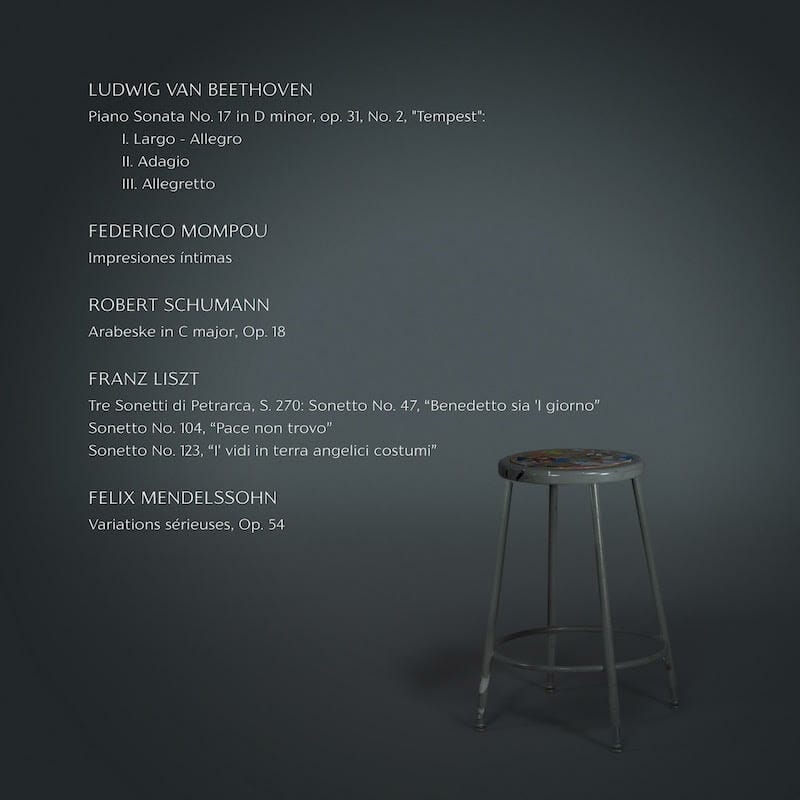Click here to read more Picture This Post Régulo Martínez-Antón stories.
The opening chord of the first movement of Ludwig van Beethoven’s The Tempest piano sonata, the first piece Suspended Times, an album of classical piano works interpreted by pianist Régulo Martínez-Antón, is delicately arpeggiated, allowing those first 12 seconds to feel eternal, as if we could pluck each note from the air in front of us. Immediately after, an initially quiet but steadily accelerating barrage of eight notes barely stops itself from erupting into a storm. This pattern repeats itself only to finally explode into a frenzy that could no longer be contained.
To this writer these initial moments are evocative of the feel of the rest of the album. The combination of a program consisting of Romantic and Impressionist solo piano repertoire, as well as musical interpretations that emphasize the emotional extremes found in each piece, lends the album a reminiscent quality, as if contemplating emotions and experiences past.
Further along the album is Impresiones íntimas (Intimate impressions), a series of miniatures by Catalan composer Federico Mompou. Each movement is no longer than three minutes – the shortest is only 40 seconds – and has a descriptive title of either a feeling, person, or thing. For example: the fourth movement, Agitato (Agitated), consists of a flurry of perturbed and chromatically moving chords, their dynamics in a constantly unstable ebb and flow. The only respites are two quiet yet foreshadowing chords in the middle, powerless to stop the barrage of notes that abruptly returns. The sixth movement, La barca (The boat), has Martínez-Antón employing plentiful rubato amidst a wandering melody and restful chords, evoking a ship swaying in gentle waves. In the eighth movement, Secreto (Secret), silence speaks louder than the notes being played as reverberations of the pensive bassline and delicate melody fill the gaps in their conversation.
The album ends with Felix Mendelssohn’s Variations sérieuses (Serious Variations). Throughout its 17 variations, the theme adopts a wide range of identities; we hear the same moment explored though differing perspectives. The original theme is timid and sparce, but a more developed harmony and prodding bassline gradually emboldens it.
After a passage full of dizzying 32nd notes a contrapuntal version of the theme reels it back before majestic chords standing on their own reveal a confidence and hope that was previously hidden. This builds, once again, into a frenzy that occupies the full pitch and dynamic range of the piano before dissipating all its energy in a series of final somber chords, signaling the end of a tumultuous journey.
Régulo Martínez-Antón Provides an Emotional Journey
Fans of classical music, especially those fond of solo piano and/or Romantic works, are sure to enjoy Martínez-Antón’s program and interpretations. Régulo Martínez-Antón’s Suspended Times is recommended to those seeking an emotional and introspective musical journey.
HIGHLY RECOMMENDED
Nominate this for The Picture This Post BEST OF 2022???
Click Readers' Choice!
Suspended Times is available for streaming on Spotify. Suspended Times is also available for purchase on Amazon.
All photos are courtesy of Régulo Martínez-Antón.

About the Author: Francisco Gallardo
Truly a jack of all trades (it’s boring being a master of one), you’ll find Francisco Gallardo playing the viola or guitar, preparing his next calligraphic work, coding up a helpful script, eating way too much sushi with the boys, or, more recently, trying his hand at writing and translation. Fortunately for him, “Hay más tiempo que vida”, so it’s only a matter of time before he finds something else to append to this list…






Hope you will enjoy this CD! It’s a special selection of works that I love. Best wishes,
https://www.facebook.com/regulomartinezanton
@regulomartinez
#regulomartinezanton
Nominated for Picture This Post BEST OF 2022